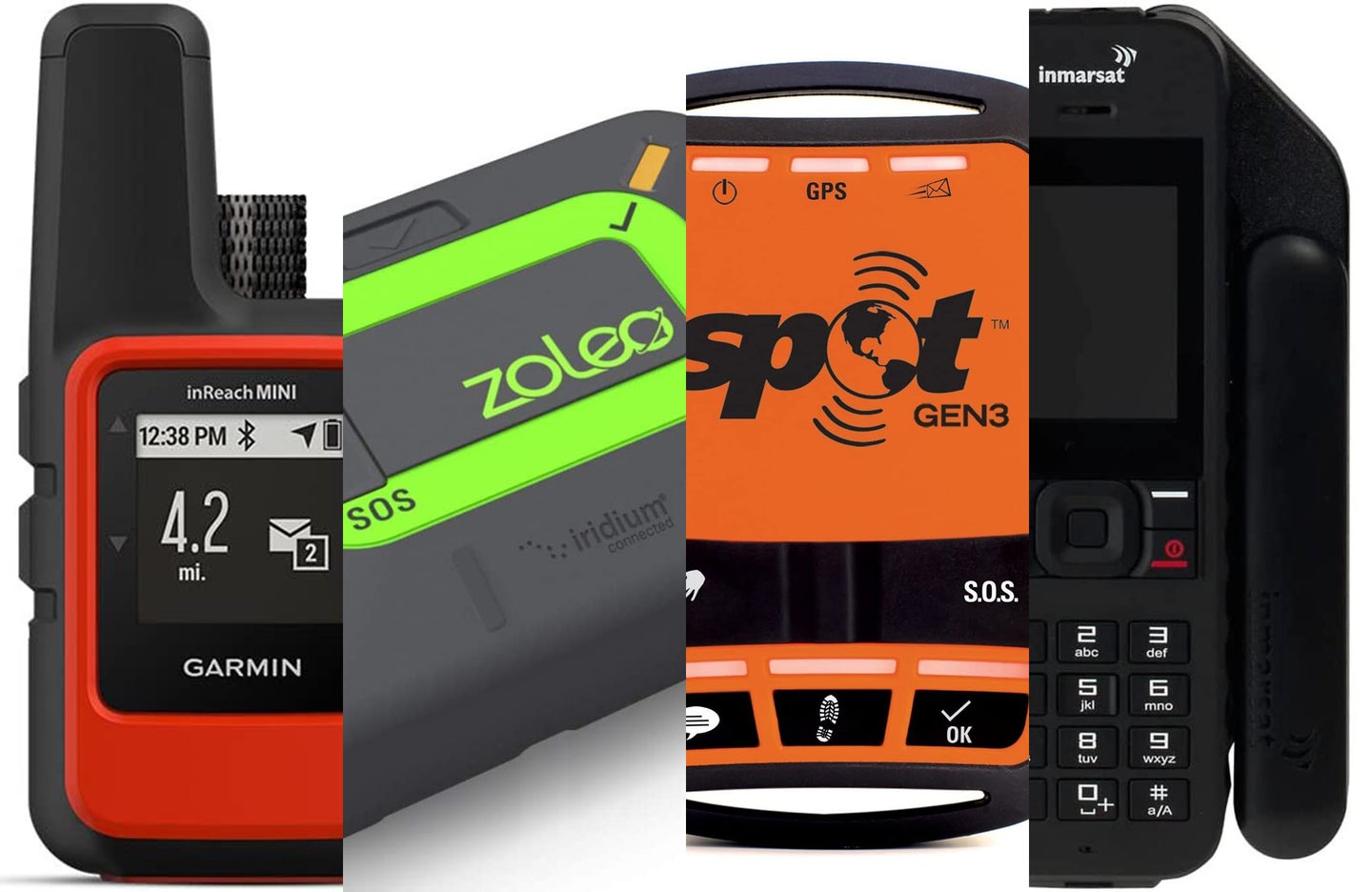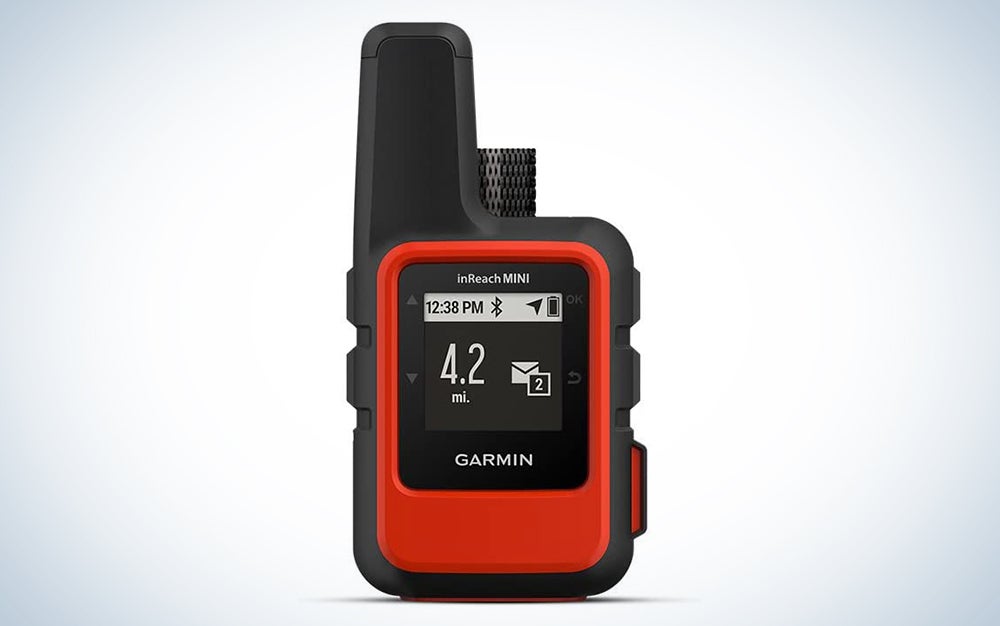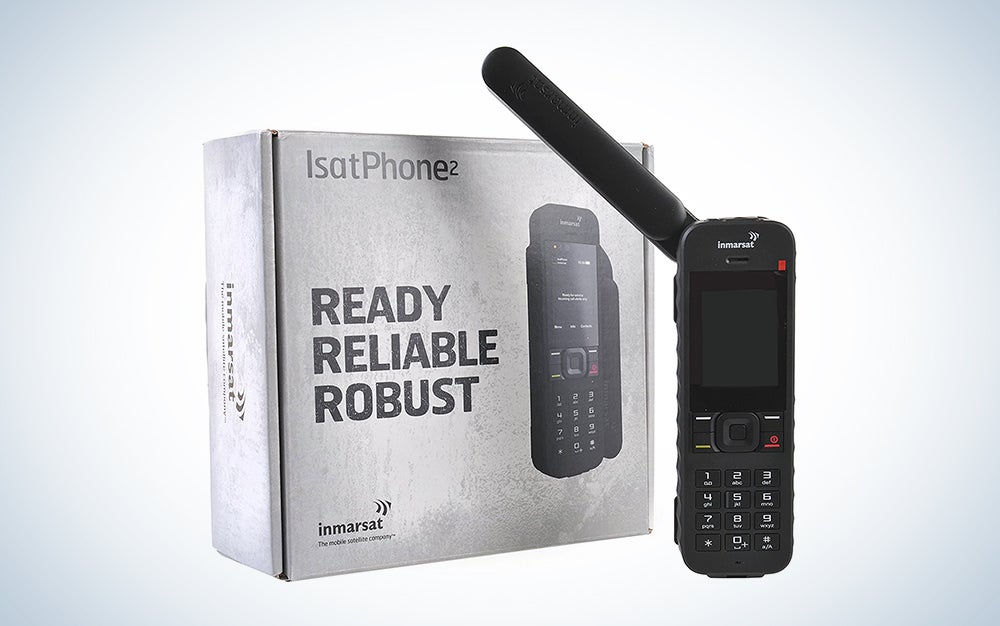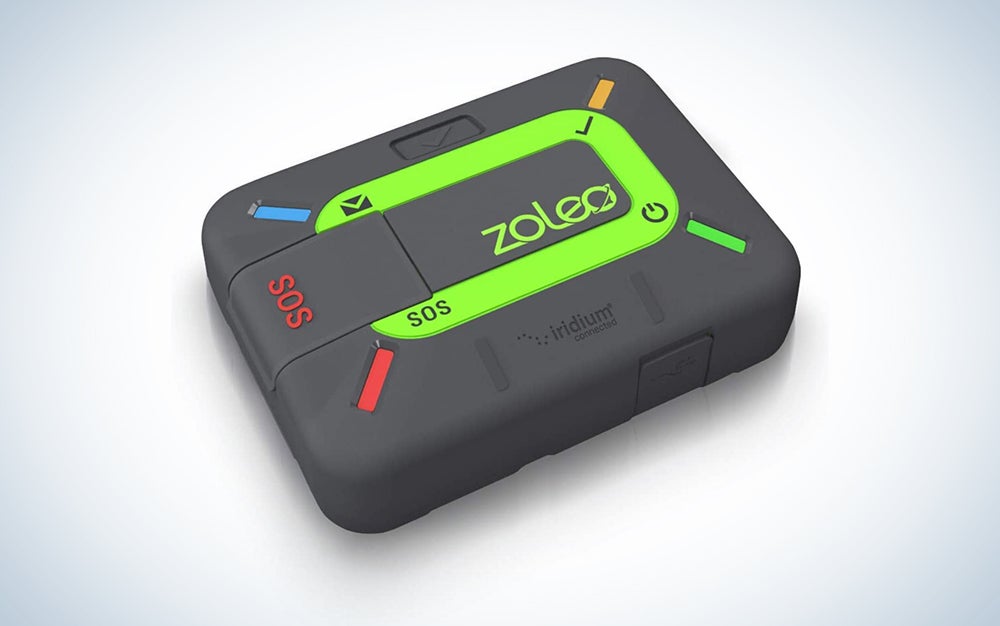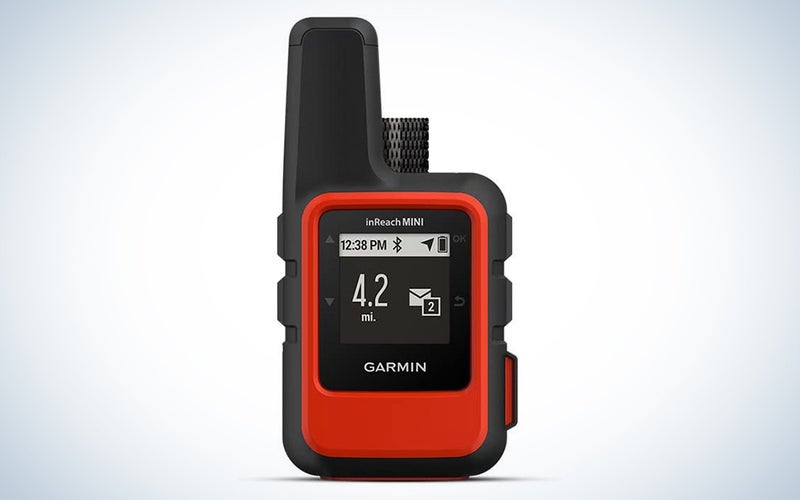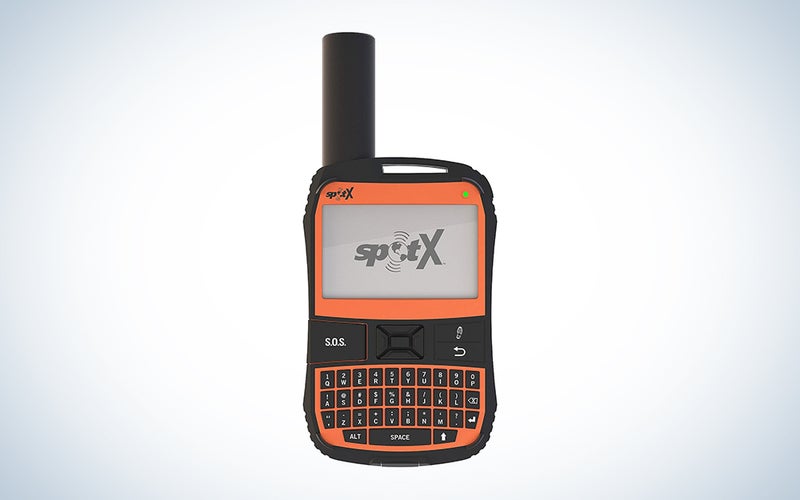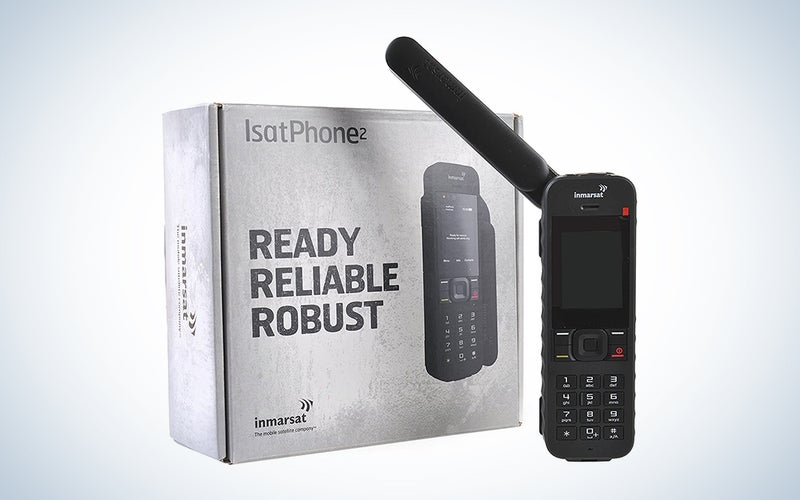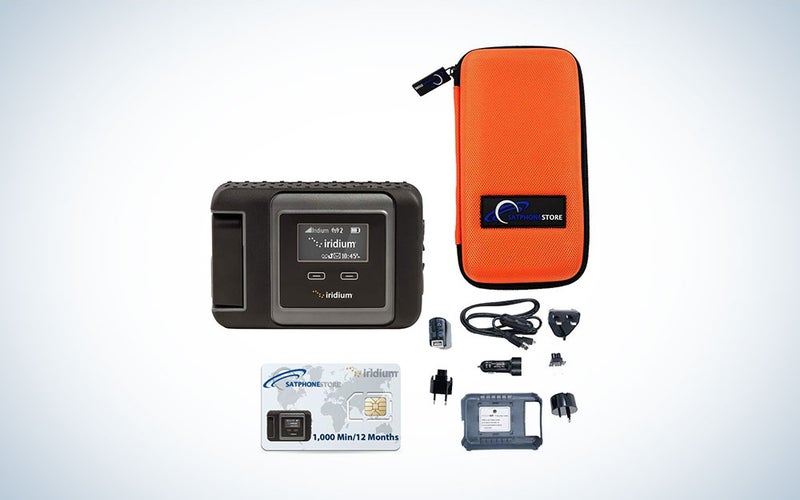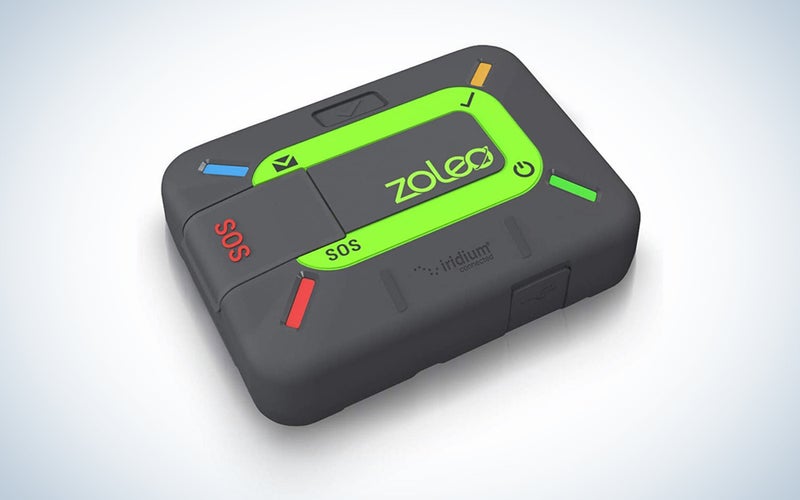We may earn revenue from the products available on this page and participate in affiliate programs. Learn more ›
Harnessing a satellite phone connection can provide you with communication anywhere globally. Using a satellite allows you to keep in touch with friends and family, whether you’re hiking in remote areas, sailing, flying, or just want to be prepared in case of a natural disaster. While cellphones and smartphones provide connections in major cities and towns, they’re dependent on terrestrial towers. In case of a natural disaster, cellphone networks can be overloaded or subject to structural damage. With one of the best satellite phones, your connection is dependent on satellites in space, so after a disaster or even if you’re traveling to the far corners of the Earth, you’ll be able to stay connected.
Satellite phones can be used for voice calls, text messaging, and even basic emails to keep in touch. They allow for emergency preparedness by issuing SOS distress signals, GPS locations, directions, and emergency weather alerts. Some sat phone packages come with a satellite-based WiFi hub that will allow for your smartphone to work in locations that don’t have cellphone connections. Some satellite phone packages even allow for broadband access to the internet. To compare phones and determine which is right for you, we’ve selected some of the best satellite phones on the market to keep you safe and connected.
- Best overall: Garmin inReach Mini GPS
- Best satellite messenger: Spot X with Bluetooth 2-Way Satellite Messenger
- Best for international travel: Inmarsat Isatphone 2.1 Satellite Phone
- Best bundle: Iridium GO! Standard Package
- Best budget: ZOLEO Satellite Communicator
How we chose the best satellite phones
When venturing off the beaten path, communication can mean the difference between smooth sailing and a rough misadventure. We looked at critical reviews and user recommendations, consulted outdoor enthusiasts and experts, and conducted heavy research to find the best satellite phones—because there’s comfort in knowing you can always call home.
The best satellite phones: Reviews & Recommendations
The best satellite phones can do everything from traversing craggy ledges and vast green hillsides to phoning home while traveling internationally. The following are our picks that will keep you in touch wherever you go.
Best overall: Garmin inReach Mini GPS
Garmin
Why it made the cut: This satellite communicator is portable and packed with features, like interactive SOS calling, to ensure safety anywhere in the world.
Specs
- Connectivity technology: Bluetooth, ANT+
- Battery life: 50 hours in default tracking mode; 20 days in power-saving mode
- Battery power: Internal rechargeable lithium battery
- Dimensions: 2 x 1.3 x 3.9 inches
Pros
- Portable
- Fast access to SOS
- Lots of battery power
Cons
- Satellite subscription required for use
Makers of top-tier hiking watches, Garmin knows GPS devices and what adventurers need. This handy mini GPS Garmin satellite phone is perfect for packing with your tent on outdoor camping trips. This satellite communicator lets you send two-way text messages using the Iridium satellite network. It is compatible with other handheld devices, and you have unlimited access to maps and aerial images through the Garmin Earthmate app to support your trip safely. Plus, it’s water-rated to IPX7 and impact-resistant, meaning it’s just as tough as your next uphill climb. Sending out an SOS message is easy thanks to 24/7 access to the GEOS emergency response team. A satellite subscription is required for use.
Best satellite messenger: Spot X with Bluetooth 2-Way Satellite Messenger
Spot X
Why it made the cut: This simple messenger allows you to send pre-programmed messages and your GPS location to loved ones.
Specs
- Connectivity technology: Bluetooth, USB
- Battery life: 10 days
- Battery power: 1 Lithium polymer battery
- Dimensions: 2.9 x 0.94 x 6.54 inches
Pros
- Easy to use
- SOV capabilities
- Spot Mapping app gives those at home peace of mind
Cons
- Must pay for a year of activation
Stick to the basics and stay safe with this simple satellite GPS messenger. Connect with friends by sending coordinates and pre-programmed messages via satellite and stay safe in case of emergency with GPS locators and SOS signals. It also includes Save Our Vehicle (SOV) request capabilities and a track button to send and save your location. Those at home can look at your location and progress using the SPOT Mapping app. Be aware that you’ll need to pay for a year of activation in order to use this device.
Best for international travel: Inmarsat Isatphone 2.1 Satellite Phone
Inmarsat
Why it made the cut: Tons of battery life and dust, splash, and shock resistance mean this sat phone is reliable and tough.
Specs
- Connectivity technology: Bluetooth
- Battery life: eight hours of talk time; up to 160 hours on standby
- Battery power: Lithium-ion
- Dimensions: 10 x 9 x 4 inches
Pros
- Easy to set up and activate
- Comes unlocked for compatibility with multiple service providers
- Lots of coverage area
Cons
- Better for traveling than hiking
- Typing on phone is tedious
The Isatphone is backed by the Inmarsat satellite network and is a good option for international travel. Additional features include GPS and SOS capabilities. Activate its included Bluetooth connection to use it hands-free. It’s preloaded with eight hours of talk time, up to 160 hours on standby, and comes with chargers, cables, and adapters. The phone is also dust, splash, and shock resistant, meaning you don’t have to worry about breaking it while out and about on your international adventure.
Best bundle: Iridium GO! Standard Package
Iridium GO!
Why it made the cut: This bundle includes tons of adapters—no dead batteries here.
Specs
- Connectivity technology: Bluetooth
- Battery life: 5.5 hours of talk time; 15.5 hours of standby
- Battery power: Lithium-ion
- Dimensions: 4.5 x 3.2 x 1.25 inches
Pros
- Lots of adapters
- Prepaid SIM card included
- Simple user interface
Cons
- Expensive
This ready-to-use satellite communicator connects to the Iridium global satellite network, which includes 66 operating satellites. A prepaid SIM card with 1,000 minutes of talk time, a rechargeable lithium-ion battery, travel and car chargers, international adapters, and even a convenient carrying case are all included in the bundle. The Iridium GO! satellite communicator also connects to the Iridium GO! app to connect five separate devices sans wires. And it’s dust-proof, shock-resistant, and jet-water resistant. Carry it in your travel backpack or mount it in a car.
Best budget: ZOLEO Satellite Communicator
ZOLEO
Why it made the cut: This flexible device lets you connect to a satellite for less than $200—a steal compared to other satellite communicators.
Specs
- Connectivity technology: Bluetooth
- Battery life: 200 hours
- Battery power: Lithium-ion
- Dimensions: 3.58 x 2.6 x 1.06 inches
Pros
- Flexibility in using satellite, WiFi, or cellular
- Iridium satellite network access
- Required monthly subscription is less than $100 for cellular, WiFi, and SOS messaging
Cons
- Monthly subscription required
Zoleo created a small rugged device with all the essentials for keeping you safe in remote locations. Highly rated by many outdoor editors, this device allows you to use the Iridium satellite network, WiFi, or cellular service, depending on what’s available. A monthly subscription is required with cost-level options, depending on your needs.
What to consider when buying the best satellite phones
While satellite phones won’t replace your smartphone for everyday use, they step in and offer communication solutions for use when cellphone service isn’t possible. Sat phones are designed for international travel—but always check the countries’ policies ahead of time: is access allowed while off-the-grid camping and hiking or for use on boats or on recreational aircraft? The best satellite phones are designed with off-the-grid use in mind and should be rugged, waterproof, and durable.
While connections are possible in all remote locations, the ability to receive signals can be hindered by buildings, roofs, shelters, or heavy tree coverage. Many manufacturers have solved this issue and offer packages that are designed to include antennas to use on the outside of structures or buildings, vehicles, boats, or even in the cockpit of an airplane.
Use case
If you want to stay safe and connected when setting out for off-the-grid outdoor adventures, you will need a small, lightweight satellite phone that’s set up to offer all the features you need to stay safe. The best satellite communicator for wilderness adventures will be rugged, waterproof, and allow for easy messaging and an SOS distress call in case of emergency.
Choosing a satellite communicator made for outdoor adventures means you’ll also have access to useful extra features. Companies like Garmin offer top-of-the-line GPS support, extra maps, topographic information, and safety advice for all types of rough terrain. Better brands offer excellent customer support as well as handy online resources.
Messaging vs. calling
When you travel or go on outside adventures, having a fully loaded SAT phone may not be necessary. Opting for a more basic satellite communication solution also means saving money. You’ve already got a smartphone—what you need is another layer of communication safety outside the cellphone zone. If you want to keep it simple, consider a satellite GPS messenger. These devices allow you to send messages to family and friends, letting them know you are safe, and also have important extra safety features like GPS location and SOS signals.
Text & voice calling bundles
The best satellite phone bundle will not only include a reliable, durable, easy-to-use phone, but it should also offer voice calling, text messaging, and email messaging. The best phones include a reliable large global network with 24/7 technical support. Packages should include all you need to use and get going without any additional purchases.
Helpful features to look for include different power adapters that allow for use in locations throughout the world. The best sat phone bundles also give you flexibility. You should be able to choose between a monthly plan or a prepaid SIM card—if you only use the phone a few months out of the year, you’re not stuck with a large monthly payment.
International travel
Sat phones are a smart solution when traveling outside your home country. (Be sure to check the policies of the country you’re visiting before bringing one: They’re illegal in some places.) The best satellite phone for international travel is easy to set up and comes with a prepaid SIM card. That gives you the peace of mind that you can use the phone quickly no matter where you are without worrying about cellphone carriers or reception. Look for phones that offer reliable voice and call connectivity, as well as emergency signals. International travel often takes you to places where you can’t be sure what to expect, and a sat phone offers safety and protection, along with the security of knowing that you won’t be unreachable.
Budget
If satellite phone cost is a factor, consider a more basic satellite communication device. Fully loaded satellite phones can set you back around $1,000, not to mention the extra cost of SIM cards or monthly service plans. Economical solutions keep communication basic but also require a monthly subscription for service.
The best budget satellite communicator allows you to text and receive texts, and some even offer apps that allow your phone to access the satellite WiFi network. Always look for added emergency features such as SOS alerts and GPS coordinates.
FAQs
Q: How much does a satellite phone cost?
Satellite phones and satellite communication devices range in price from $300 to over $1,000. In addition to hardware costs, you need a satellite provider to connect the phone for service and can purchase a monthly or prepaid plan from $100 to $5,000. Depending on your provider, voice calls range from $.0.15 to $2.00 a minute. Satellite calls between different satellite networks can be expensive. Review voice calls, text messaging, and incoming call costs with your selected provider.
Q: Are satellite phones illegal?
Satellite phones are not illegal in the United States, but in some countries, like China and Cuba, they are. It’s important to research and contact the government of any country you may be visiting to check their policies for use. Satellite phones have restricted use in some countries (e.g., Russia, India), and you must get permission to use these devices or risk arrest. Legal restrictions are in place to curtail any possible illegal or terrorist activities that depend on signals that can bypass censorship and wiretapping.
Q: Can I turn my phone into a satellite phone?
It is possible to use your smartphone as a satellite phone by purchasing a SatSleeve (Satellite Sleeve) and installing the SatSleeve App. The first time you use your SatSleeve, you have to set it up to connect via Bluetooth. Some satellite providers (like Iridium Go!) offer packages that include a satellite phone and a satellite phone hotspot that allows you to connect your smartphone, tablet, or laptop to a satellite-backed WiFi hotspot.
Final thoughts on the best satellite phones
- Best overall: Garmin inReach Mini GPS
- Best satellite messenger: Spot X with Bluetooth 2-Way Satellite Messenger
- Best for international travel: Inmarsat Isatphone 2.1 Satellite Phone
- Best bundle: Iridium GO! Standard Package
- Best budget: ZOLEO Satellite Communicator
The best satellite phones will allow you to roam around the globe and stay connected. With rugged, waterproof designs, these phones can follow you on any adventure by land, sea, or air. Connect with a prepaid SIM card, or with a monthly plan to keep safe and communicate no matter where you are. In case of emergency, sat phones will send SOS signals and GPS coordinates to make sure you return home safe. Compare phones, then get shopping.
Why trust us
Popular Science started writing about technology more than 150 years ago. There was no such thing as “gadget writing” when we published our first issue in 1872, but if there was, our mission to demystify the world of innovation for everyday readers means we would have been all over it. Here in the present, PopSci is fully committed to helping readers navigate the increasingly intimidating array of devices on the market right now.
Our writers and editors have combined decades of experience covering and reviewing consumer electronics. We each have our own obsessive specialties—from high-end audio to video games to cameras and beyond—but when we’re reviewing devices outside of our immediate wheelhouses, we do our best to seek out trustworthy voices and opinions to help guide people to the very best recommendations. We know we don’t know everything, but we’re excited to live through the analysis paralysis that internet shopping can spur so readers don’t have to.
